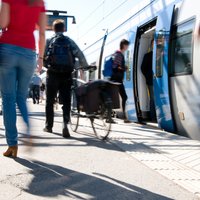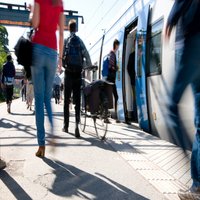A Sustainable Mobility System for Everyone
ShapingDIT study: Eight theses to pave the way to a digitalised and sustainable mobility transition

ShapingDIT study: Eight theses to pave the way to a digitalised and sustainable mobility transition

The transport sector accounts for 20 per cent of the greenhouse gas emissions in Germany and it is therefore key to success for German climate policy. At present, however, there is no other sector with a wider gap in missing the trajectory to climate neutrality. The study "Sustainable Mobility for Everyone", conducted on behalf of Huawei within the project "Shaping the Digital Transformation – Digital Solution Systems for the Sustainability Transition", points out new pathways towards a sustainable and climate friendly transition of the transport sector. The report specifies concrete options to follow up on the ambitious goals of the new coalition agreement to foster clean and digital mobility solutions.
As Thorsten Koska, Co-Head of the Mobility and Transport Policy Research Unit at the Wuppertal Institute and one of the authors of the study, points out "Effective climate protection in the transport sector needs an integrated approach for connecting pedestrians, bikers and public transport, complemented by innovative Mobility-as-a-Service (MaaS) solutions, in which, for example, shared cabs are flexibly available". Furthermore, he adds that "Digitalisation is key to achieve that goal."
Digital solutions enhance the usability and attractiveness of climate friendly mobility alternatives. Using the smartphone, it is just a few clicks to plan, book and pay for bus and train rides. It is time now to upscale those solutions to reach a broader public and to step up to a new level of connecting and sharing the available data. "To leverage the full potential of digital solutions, still prevailing obstacles such as a fragmented landscape of local fare rates or inconsistent booking systems need to be removed. Standards for data structures, data streams and data interfaces have to converge to ensure door-to-door mobility for everyone," emphasises Paul Schneider, Junior Researcher in the Mobility and Transport Policy Research Unit at the Wuppertal Institute and one of the authors of the study. This would create an attractive alternative to owning a car that is easily accessible to people, whether they live in the city or in the countryside.
The authors refined eight theses on how digitalisation can foster sustainable mobility solutions and how to shape a supporting policy framework, which is aligning the financial and regulatory guardrails for ramping up a sustainable mobility system while gradually phasing down the usage of private cars.
